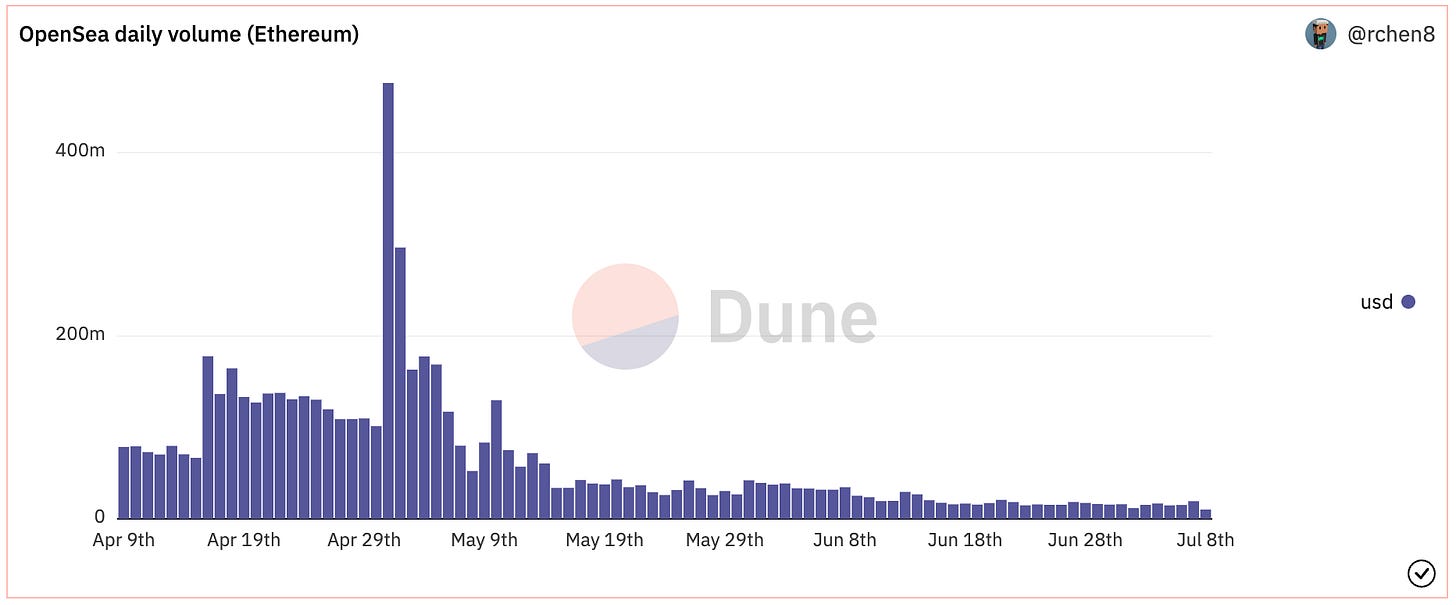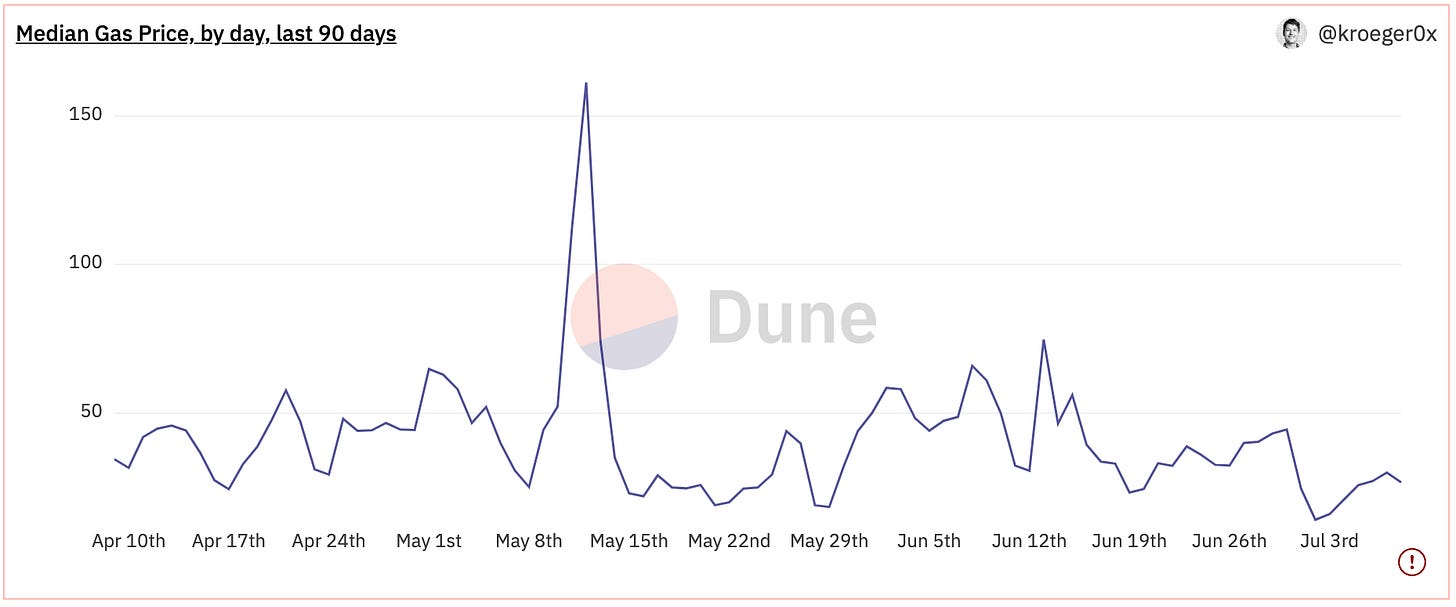Startup Societies
Welcome to another issue of Vault. This week, we’ll be taking a look at the launch of Balaji Srinivasan’s The Network State, and pull together a few volume and revenue charts to get a sense of the industry’s health metrics post-correction.
The Rise of the Network State
Balaji Srinivasan’s hotly-anticipated book The Network State was released this past week. You can order it here, or read it online here.
The idea of the network state begins with the idea of a startup society and expands into a cryptographically-audited “city in the cloud” with its own census and economic metrics.

The story goes that with enough economic growth backed by verifiable numbers—a startup society would plant roots in the real world and seek recognition from the international community.
Srinivasan defines a network state in this way:
“A network state is a social network with a moral innovation, a sense of national consciousness, a recognized founder, a capacity for collective action, an in-person level of civility, an integrated cryptocurrency, a consensual government limited by a social smart contract, an archipelago of crowdfunded physical territories, a virtual capital, and an on-chain census that proves a large enough population, income, and real-estate footprint to attain a measure of diplomatic recognition.”
It’s not exactly an intuitive idea. But the more you think about it, the more it unfolds and begins to make more and more sense.
The concept, at least initially, is similar to a network of embassies. Take the U.S. Embassy in Paris as an example.


Despite residing within a French building, sitting on French soil, and being surrounded by the nation of France—the U.S. Embassy in Paris is granted a degree of sovereignty, exemption from French law, and allowed to enforce U.S. laws on its grounds. This status is only achieved through diplomatic mutual interest and recognition from the French government.
It is a common myth that embassies are considered ‘foreign soil.’ This isn’t strictly true. But it is true that the host country grants the embassy a special status and, for all intents and purposes, treats the embassy as if it was the foreign nation itself—by respecting its sovereignty, property rights, laws, and customs.
Theoretically, the French could rescind the embassy’s sovereignty and impose French law at any time, but in all likelihood—they won’t—because it wouldn’t be worth the diplomatic tensions or the shifting of precedent. Depending on the severity, an incursion on the embassy could be considered an invasion—tantamount to an act of war.
All of these rules are negotiated, and all of these customs form over time. An embassy is a shared story; a meme. It’s a concept that exists because everyone agrees that it exists within a set of shared rules.
A network state has a similar mimetic pathway to national, then international, recognition. With enough economic and social proof, the startup society could negotiate with the host country to grant the startup society some degree of sovereignty over property, a plot of land, or both. Initially, the territory would be treated like an embassy. Technically, the soil would belong to the host country, but partial exemption from the host nation’s legal system could be negotiated, or the startup society could be granted preferential tax treatment or trade agreements, as is already the case with Special Economic Zones around the world. At this stage, the startup society resembles the old concept of an entrepôt (cities that would grow from ports used in the days of wind-powered shipping; it means “warehouse” in modern French)—but refactored for highly-skilled knowledge workers with the ability to work remotely.
The old world traded spices, and the new world trades information.
Health Metrics
NFT trading volume on OpenSea has fallen over the past month, but has tapered off to a consistent level.
Music NFT releases have slowed as well. The chart below charts new releases against total supply for sound.xyz.
DEX volumes have tapered as well, but even with activity falling off—Uniswap is still doing nearly $1 billion per day in volume and remains the dominant DEX across all metrics (see the market share chart below).
ETH gas prices have dropped overall as the network sees less usage overall, but still remain within a steady range.






